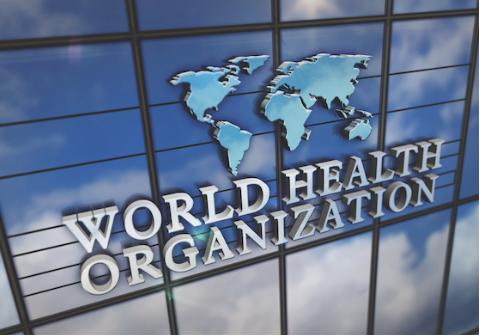WHO and global partners launch new effort to address falling childhood vaccination rates Over 25 million children missed at least one vaccination in 2021 alone
May 5, 2023
Source: drugdu
 273
273

WHO
The World Health Organization (WHO), along with other global and national health partners, has launched a global effort to boost vaccination among children following declines driven by the COVID-19 pandemic.
WHO, UNICEF, Gavi, the Vaccine Alliance, the Bill & Melinda Gates Foundation and others announced 'The Big Catch-Up' to reverse the declines and protect populations from vaccine-preventable outbreaks such as measles, polio and yellow fever.
Over 25 million children missed at least one vaccination in 2021, and the effort will focus on the 20 countries where 75% of these children live.
WHO director-general, Dr Tedros Adhanom Ghebreyesus, said: "Millions of children and adolescents, particularly in lower-income countries, have missed out on life-saving vaccinations, while outbreaks of these deadly diseases have risen.
"WHO is supporting dozens of countries to restore immunisation and other essential health services. Catching up is a top priority. No child should die of a vaccine-preventable disease."
Vaccine coverage took a major hit during the pandemic due to a range of reasons including overburdened health services, closed clinics, and disrupted imports and exports of vials, syringes and other medical supplies.
Ongoing challenges like conflicts, climate crises and vaccine hesitancy are also contributing to the decline in coverage rates.
The effort will see the partners work with countries to strengthen their health care workforces, improve health service delivery, build trust and demand for vaccines, and address gaps and challenges to restoring immunisation rates.
“Routine vaccines are typically a child’s first entry into their health system and so children who miss out on their early vaccines are at added risk of being cut out of healthcare in the long run,” explained UNICEF executive director, Catherine Russell.
“The longer we wait to reach and vaccinate these children, the more vulnerable they become and the greater the risk of more deadly disease outbreaks. Countries, global partners and local communities must come together to strengthen services, build trust and save lives,” Russell said.
The launch comes just days after WHO released the largest global collection of publicly available disaggregated data on health inequality.
Disparities in national COVID-19 responses were revealed by the Health Inequality Data Repository, which found that in 2021, in more than a third of the 90 countries with data, COVID-19 vaccination coverage among the most educated was at least 15 percentage points higher than among the least educated.
Reference:
By editorRead more on
- The first subject has been dosed in the Phase I clinical trial of Yuandong Bio’s EP-0210 monoclonal antibody injection. February 10, 2026
- Clinical trial of recombinant herpes zoster ZFA01 adjuvant vaccine (CHO cells) approved February 10, 2026
- Heyu Pharmaceuticals’ FGFR4 inhibitor ipagoglottinib has received Fast Track designation from the FDA for the treatment of advanced HCC patients with FGF19 overexpression who have been treated with ICIs and mTKIs. February 10, 2026
- Sanofi’s “Rilzabrutinib” has been recognized as a Breakthrough Therapy in the United States and an Orphan Drug in Japan, and has applied for marketing approval in China. February 10, 2026
- Domestically developed blockbuster ADC approved for new indication February 10, 2026
your submission has already been received.
OK
Subscribe
Please enter a valid Email address!
Submit
The most relevant industry news & insight will be sent to you every two weeks.



